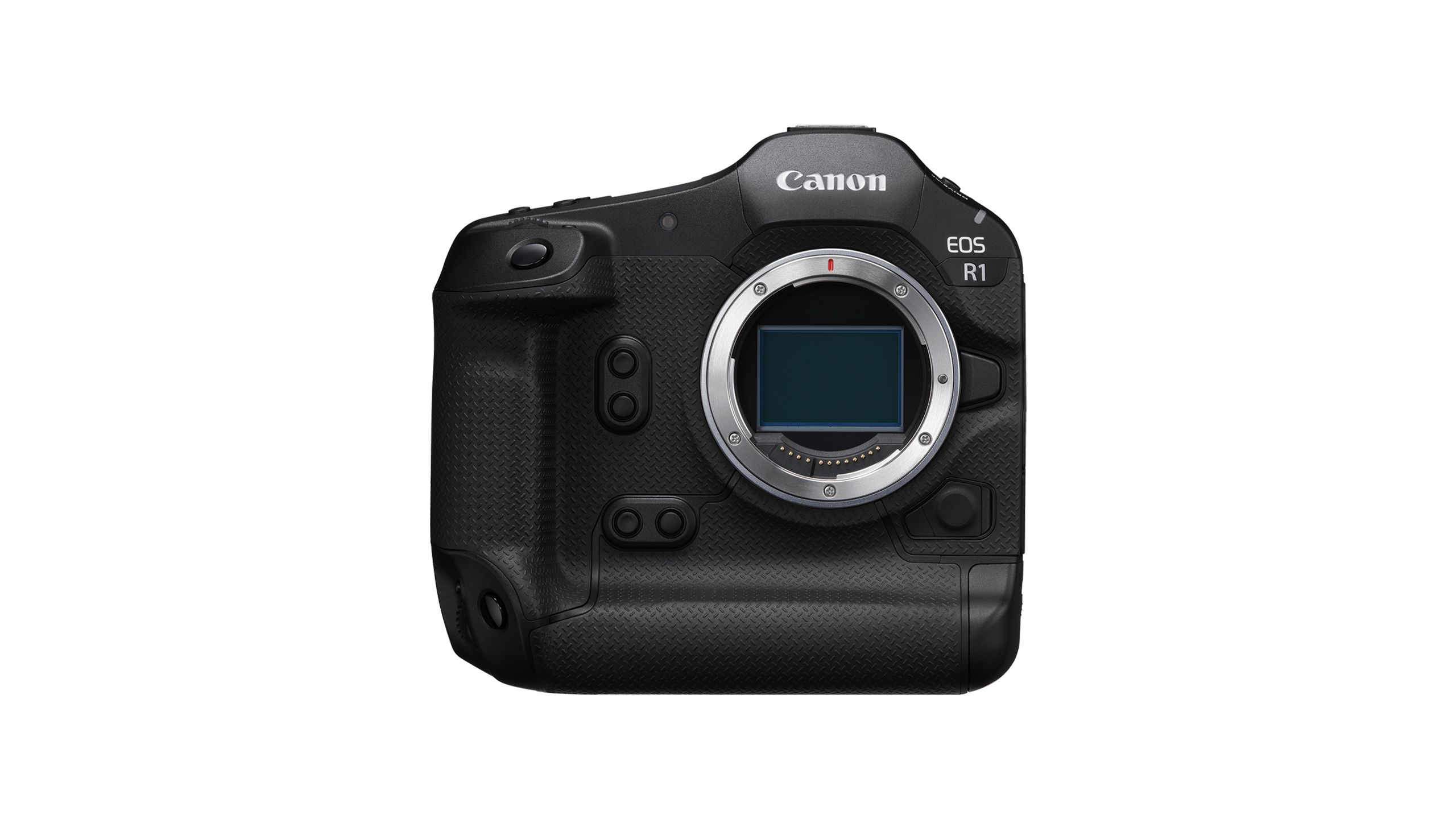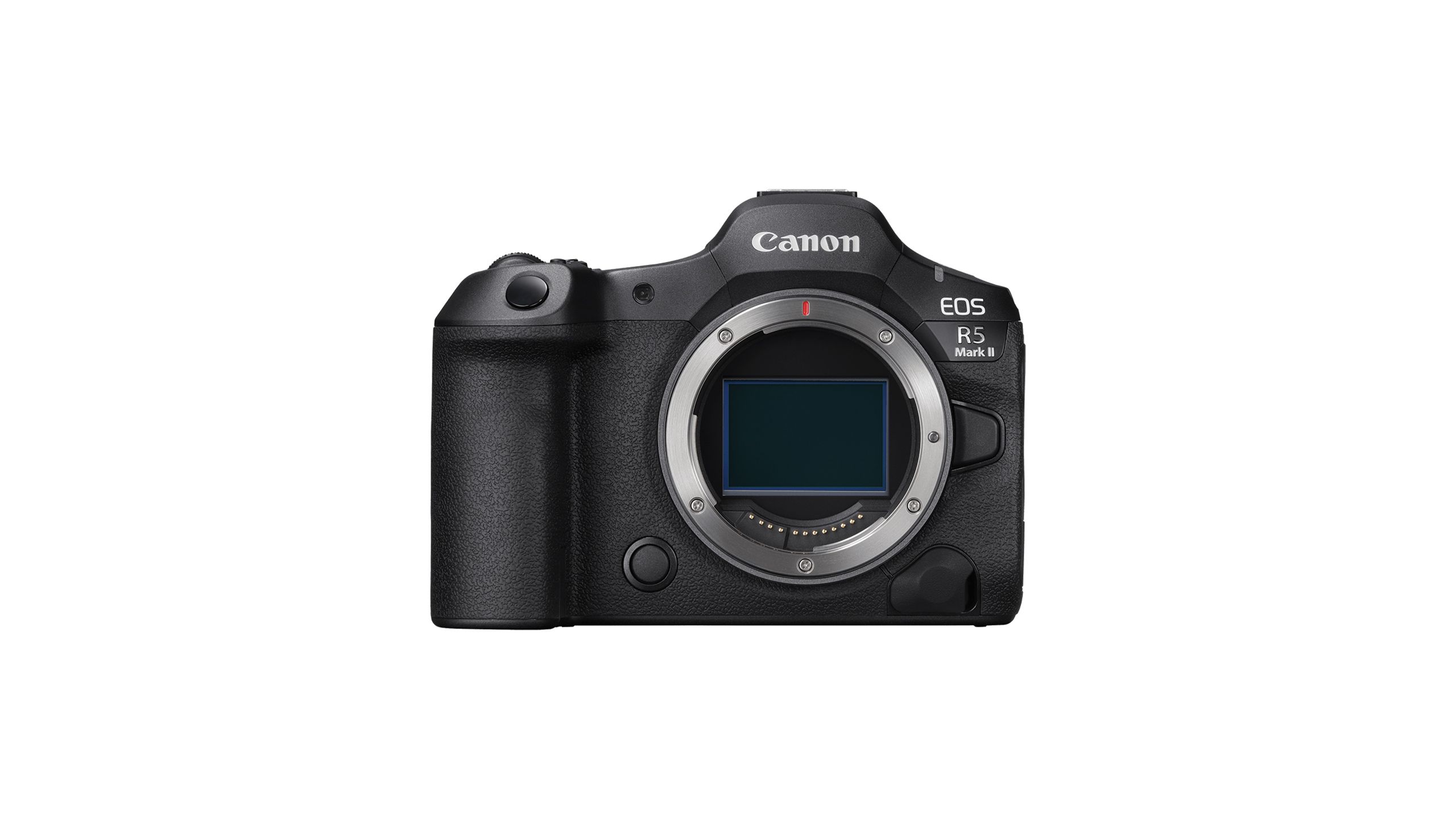Key Takeaways
- Canon released two new cameras, the EOS R1 for photojournalists and the EOS R5 Mark II for hybrid shooters.
- The EOS R1 boasts a 24MP sensor, 40 fps burst shooting, 6K video, and AI features and is priced at $6,299.
- The EOS R5 Mark II features a 45MP sensor, 30fps burst speed, 8K video, and improved autofocus and will be available in August for $4,299.
Canon didn’t want Amazon to get all the attention today and announced not just one but two impressive cameras for serious photographers to its mirrorless lineup. So far this year, Canon has only released a single cinema camera, with no other camera announcements. It’s been a slow year thus far for the company, but they certainly wanted to come back with a bang.
The Canon EOS R1 is the company’s newest flagship camera, with fast performance, rugged build quality, and fast burst shooting. It’s designed for professional photojournalists, sports, and wildlife photographers. Meanwhile the EOS R5 Mark II brings an update to the incredibly popular high-resolution EOS R5 promising superb hybrid performance. Here’s what we know about the two new cameras.
Related
Best Canon camera: Classic for a reason
Canon is a titan in the camera industry, but not all its models are equal. We ranked our favorites to help you choose from the best.
Canon EOS R1
A powerful tool for professionals
The new Canon EOS R1 sits at the top of the Canon lineup as a tool for pro-level photographers prioritizing performance above all. It features a 24MP stacked BSI CMOS sensor with a Digic Accelerator front-engine processor and Digic X processor. The result of that combination is faster read-out speeds and reduced rolling shutter distortion. Plus, it’s capable of up to 40 fps with Pre-Continuous Shooting to ensure you never miss the critical moment of a situation. There’s also a mechanical shutter capable of up to 12 fps.
The R1 features an 8-stop IBIS unit to assist with sharp images even in poor lighting conditions. In terms of video, the camera can record 6K 60p RAW and 4K 120p 10-bit internal video. It provides access to false color, zebra display, and tally lamp functions, as well as Canon Log2, 3, PQ, and HLG in-camera picture profiles.
A key component for sports photographers and photojournalists is fast autofocus. The R1 uses Canon’s next-gen autofocus, dubbed Dual Pixel Intelligent AF. Canon says the camera is able to focus down to -7.5 EV for photo and -5.5 EV for video, making it easier to use in low-light conditions. The 4897-point phase-detection system automatically recognizes people, animals, and vehicles, and offers Eye Detection with the ability to select either the left or right eye as the priority. Plus, photographers can use the same Eye Control AF that’s found in the EOS R3.
Beyond the basic autofocus abilities, the R1 gets a new Action Priority mode meant for photographing, well, action. Canon says this mode will recognize specific movements and move the AF area to the player performing key movement, such as jumping, passing, taking a shot, and more. The new system currently recognizes soccer, basketball, and volleyball.
It wouldn’t be 2024 if there wasn’t some mention of AI, even in a camera. The first is in-camera upscaling that uses deep learning to double the pixels both horizontally and vertically. This mode can produce a 96MP jpeg file in 10 seconds, according to Canon. It isn’t using pixel-shift technology, but simply upscales the image much like you could do in Photoshop.
The second AI feature is a deep-learning noise reduction tool that you could apply in-camera to a RAW file. There are plenty of programs to do the same thing on a computer, but having access to that in camera could speed up the workflow for photographers who need to get work out immediately.
The body of the R1 is what we’d expect for Canon’s flagship camera and features an aggressive and rugged design with an integrated vertical grip. It uses dual CFexpress Type B card slots to keep up with high-speed shooting. Plus, there are plenty of ports and connectivity options for demanding pros.
The EOS R1 will be available fall of 2024 for $6,299.
Canon EOS R5 Mark II
A well-rounded hybrid machine
While the R1 is certainly impressive, the camera that will be of interest to more people is the R5 Mark II. The original R5 is an incredibly popular choice among hybrid shooters wanting a high-resolution sensor, but it’s four years old at this point. The second iteration promises plenty of upgrades to appease professional photographers, content creators, and serious enthusiasts alike.
First and foremost, the R5 II keeps the 45MP resolution but sees a sensor upgraded to a back-illuminated stacked design with the same Digic Accelerator front-engine processor and Digic X processor as the R1. As a result, the camera has much faster readout speeds and less rolling shutter than its predecessor. It’s capable of up to 30 fps with Pre-Continuous Shooting.
The R5 II gets the same impressive Dual Pixel Intelligence AF as the R1 as well as the new Action Priority setting. Plus, The R3’s Eye Control AF mode also trickles down to the R5 II, meaning photographers can control where the autofocus area is using their eye when using the EVF. The new camera should provide a much faster, more accurate autofocus with an easier way to control it.
As a true hybrid camera, the R5 II offers some impressive video stats. It can record internal 8K 60p SRAW or 4K 120p 10-bit video at the full sensor width. The camera supports Canon Log3, split saving, and recording time up to 120 minutes at 4K 60p and below. Additionally, Canon announced a new grip that incorporates a fan, making larger recording formats and longer recording times possible. Overheating was an issue on the R5, so this grip fan should be a welcome addition for videographers.
Despite the impressive specs, the R5 II stays relatively compact and lightweight. It is dust- and moisture-sealed to stand up to bad conditions and features a CFexpress Type B slot for RAW video recording and a UHS-II SD slot for backups or less demanding scenarios. Plus, it uses a new, higher-capacity LP-E6P battery. It will accept the LP-E6N and LP-E6NH batteries, but the higher capacity option is necessary for 8K video and the top drive speeds.
Overall, the R5 II is potentially Canon’s most capable, well-rounded mirrorless camera yet. It offers truly hybrid features for demanding pros who shoot both photos and video with burst speeds fast enough for sports and wildlife photographers and resolution high enough for wildlife photographers and demanding creators.
The EOS R5 Mark II will be available in August this year for $4,299.
Trending Products

Cooler Master MasterBox Q300L Micro-ATX Tower with Magnetic Design Dust Filter, Transparent Acrylic Side Panel, Adjustable I/O & Fully Ventilated Airflow, Black (MCB-Q300L-KANN-S00)

ASUS TUF Gaming GT301 ZAKU II Edition ATX mid-Tower Compact case with Tempered Glass Side Panel, Honeycomb Front Panel, 120mm Aura Addressable RGB Fan, Headphone Hanger,360mm Radiator, Gundam Edition

ASUS TUF Gaming GT501 Mid-Tower Computer Case for up to EATX Motherboards with USB 3.0 Front Panel Cases GT501/GRY/WITH Handle

be quiet! Pure Base 500DX ATX Mid Tower PC case | ARGB | 3 Pre-Installed Pure Wings 2 Fans | Tempered Glass Window | Black | BGW37

ASUS ROG Strix Helios GX601 White Edition RGB Mid-Tower Computer Case for ATX/EATX Motherboards with tempered glass, aluminum frame, GPU braces, 420mm radiator support and Aura Sync












